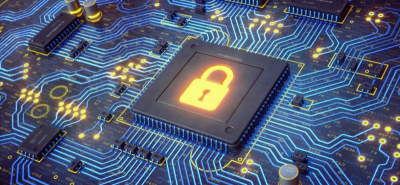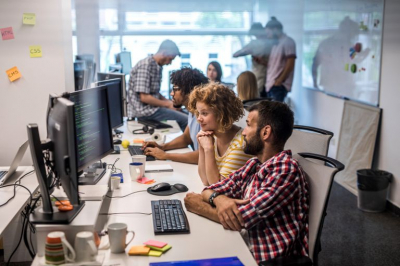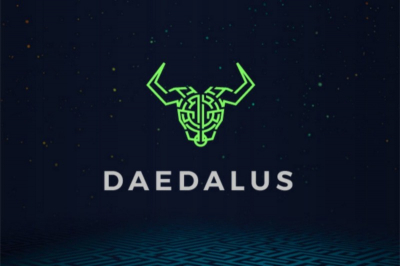Why did these countries have to wait for blockchain?
First and foremost, we need to understand why blockchain technology is making a difference and why poor countries have failed to build a financial and social infrastructure similar to what we know in Western countries. To some extent, this is a failure of Western countries and international organizations to support the building of critical financial infrastructure in poor countries. The subject is, of course, complex and there is no point in looking for a culprit. However, the fact is that there are still people living in poor countries today who do not have an identity card and therefore are not entitled to open a bank account. This is also the case for people living in El Salvador, where 70% of the population does not have a bank account.
I remember a time when my parents used to receive their salary in an envelope at the end of the month directly from their accountant in the factory where they worked. The envelope contained the entire salary. Every month my parents had to fill out the slips and go to the post office in-person to pay the necessary taxes. There used to be long lines at the post office since everyone else in town did the same. We westerners can’t imagine that today. Our life is much easier thanks to the internet. We get money in our bank account and all the mandatory payments come out of it. I imagine that in poor and developing countries today it is similar. Rather much worse, as people don’t even have ID cards.
Our lives are easier thanks to modern technology. Especially the internet that has been adopted by the banking system. As a result, most payments today are made digitally via internet banking or credit cards. The internet and mobile networks are now the gateways to a simpler life. Not surprisingly, these services are available in poor countries, or there is an effort to build them. The presence of the Internet allows the entry of banking services. However, this is often not the case. There may be several reasons for this. Citizens do not always have IDs and are poor, so they would not have such large sums of money in their accounts compared to Western clients. For example, the high volatility of national currencies can also be a problem. Commercial banks are profit-oriented, so they don’t do what doesn’t pay economically. Banks do not want to subsidize the improvement of the living standards of poor people. So the presence of the internet in a country does not necessarily mean that people can get their wages paid into their accounts and pay taxes more easily.
Technology has emerged on the scene that solves the problem. Public blockchain networks are automatically available wherever the internet is available. Nowhere decides whether the network will be present or not. No one is looking at economic interests. Blockchain networks are natively global and can be used instantly and completely free by anyone with a device to connect to the internet. The only fees are transaction fees, and those will go down in competition.
Cardano is being built with the goal of becoming a social and financial platform. The main mission of the project is focused on helping people in poor countries like Ethiopia or El Salvador. Cardano is already present in these countries and people can install Daedalus or Yoroi wallets. The biggest advantage of a public network is that there is no need to pay for the cost of building new infrastructure. A poor country does not have to invest in computers, administrators, or maintenance. The IOG pays for the cost of protocol development at the moment. In time, the costs will be covered by the project coffers. Cardano will be here for the next few decades and the IOG team will continue developing it. IOG currently has over 500 employees.
What can Cardano offer developing countries?
The government of Ethiopia has decided to build an identity for its citizens on Cardano. ATALA Prism, which is a decentralized identity solution, will help to do this. ATALA Prism uses Cardano blockchain to store decentralized identity. The whole project will start with 5 million students and 750,000 teachers getting their identities, often for the first time in their lives. This allows students to store information related to their studies on their phones. For example, school attendance, grades, or a diploma. Once the student shows the diploma to another school abroad or to a future employer, these third parties can easily verify that it is authentic and do not need to contact the school that issued the diploma. The whole solution works on the basis of cryptography. The advantage is that the information is completely private and only stored on the students’ phones and no one else has access to it. If this solution works well in Ethiopia, it can work just as well anywhere else in the world.
People in the west are used to having plastic cards as their ID, credit cards, discount cards, driving license cards, or access cards. Our wallets are full of plastic. Yet we also carry our phones with us all the time. In a world that is becoming increasingly digital, why do we need to have plastic cards? We need to prove our identity at the doctor’s or at the bank and we use our ID card to do that. It does not matter to a third party whether we prove our identity via a plastic card or digitally. As long as it’s an official ID from the country in question, the third parties do not care. The digital form is more reliable than the plastic one. Along with the digital identity, biometric data and public cryptographic material will also be stored in the blockchain for authentication. The issuer of the ID card can thus verify the identity of the citizen through biometric data. He or she then issues the ID card and digitally signs it. The citizen can then present the digital ID card and prove through biometrics that it is indeed his. A digital ID card will be much more difficult to steal and misuse. Access to the phones is protected by biometric data or PIN. Even if someone steals the digital ID, the biometrics will not match and a third party can easily detect the fraud. Plastic ID cards are much easier to misuse, as if the thief resembles who is pictured in the photo, they can easily trick a third party.
The traditional world has fallen behind when it comes to the needs of the digital world. Today’s services like Google, Facebook, and cryptocurrency exchanges operate entirely digitally. If you want to use an exchange that is based abroad, you have to take a photo of the plastic ID and send it to them. Then take a photo of yourself while still holding a sign with today’s date on it. All this is to verify your identity. Today’s world doesn’t need plastic ID cards. It really is time to embrace biometrics and fully digital identity.
People often have blockchain capabilities associated only with the transaction system. But as you can see, the possibilities of blockchain are much greater. The W3C has been trying to build a decentralized identity for a long time, but until now there has been a lack of reliable decentralized infrastructure. Now we have it, and decentralized identity will become the new standard of the Internet. This applies not only to developing countries but also to Western ones.
The global transaction system is also very important and one of the reasons why El Salvador adopted Bitcoin. Cross-border transactions are very expensive for the people of El Salvador as traditional financial services charge exorbitant fees. Bitcoin network transaction fees can be very expensive and volatile. This is mainly due to scalability issues. Thus, for cross-border transactions, it will eventually be used not Bitcoin itself, but a second layer called the Lightning Network. This demonstrates beautifully that people need financial infrastructure more than they need a volatile token. People working abroad will transfer value to their relatives in El Salvador. If they earn $1,000 abroad, they need to transfer exactly that amount, which their parents can spend, for example. They expect speed, reliability, and, most importantly, cheap fees in the range of cents, not tens of dollars, from the financial infrastructure. Cardano can enable the people of El Salvador to do exactly the same at the first layer. A second layer called Hydra can bring the speed and fees even lower over time.
Cardano will have its algorithmic stable coin. It is only a matter of time before tokenized dollars such as USDT or USDC appear on it. This way, people can send dollars to each other directly and avoid the dangerous volatility of cryptocurrencies. People in poor countries don’t want to speculate on the rise or fall in value. Stability is the path to prosperity. A sudden drop in the value of cryptocurrencies can do a lot of harm to poor people in the short term.
So far we have talked about digital identity and transactions. How are the two related? Let’s ask an important question. Does it make sense to separate citizenship and the transaction system? There are cases where it does and there are cases where it doesn’t. If we want to replace banking services like loans or use blockchain for tax payments or land registry, working with identity is key. At the state level, identity is definitely important because it is important to recognize who has paid taxes and who has not. Indeed, not only citizens but also state authorities can have a decentralized identity. The authorities need to keep track of who has paid taxes and who has not. They need to have records. Moreover, in countries where corruption is high, it is necessary for there to be demonstrable and indestructible proof that taxes have been paid. The ability to audit the payment history is an absolutely essential condition. In addition, it must be ensured that the money collected is not stolen. Cardano can offer such a solution. People can pay taxes through the blockchain, via their identity, directly to the address of the office. The identity of the authority can also be easily verified by citizens. With the development of cryptography and second layers, it will eventually be possible to make transactions private. It will be impossible for Alice to find out if her neighbor Bob paid taxes and how much.
Identity comes in handy in many other places as well. For example, it is crucial for business. Of course, an employer can pay wages to its employees through blockchain addresses, but sooner or later this solution will prove impractical. Why? Because the employer will have to keep a record somewhere externally of what blockchain addresses the employees have. What if they work directly with the identity provided, which they will have anyway? Carol’s employer could then send Alice and Bob’s wages just through their identities without having to ask them for blockchain addresses. This solution is also feasible.
Trust is built over a long period of time. If two business people do not know each other and it is not possible due to the geographical distance between them, a decentralized identity can help here as well. Trust is generally built over a long period of time between people. If a given businessman trusts his partner, he can confirm to others that a given decentralized identity is trustworthy in his experience. Something like this is hard to achieve in a fully anonymous environment. Once people start to go online under their digital identities, they will be careful not to lose their trust. It works the same way in the physical world. We also don’t want to lose reputation and trust. As the world becomes digital, things are being transferred from the physical world to the digital world.
Regulation is also a complex issue, as privacy requirements and the defense against support for terrorism are pitted against each other. Here again, digital identity can help increase the privacy of transactions. As long as Alice and Bob are citizens of the state, the state would allow them to send transactions to each other. The problem is that the state can’t find out if Alice is sending money to Carol, who is a terrorist. Therefore, the state requires that all transactions be transparent. If the state allowed citizens with a specific digital identity or permission to send private transactions to each other, the problem would be over. It will meet the users’ demand for greater privacy while preventing the promotion of terrorism and money laundering. At the technology level, this is a solvable problem. International organizations and states will always insist on certain conditions, and there is no point in fighting this with resistance and revolt. Seeking a solution that is workable for both sides is the best we can do.
From the point of view of governments and their citizens, it is very beneficial to use the available infrastructure. The government doesn’t own the infrastructure, it just uses its capabilities. So it cannot abuse the infrastructure. This is a great advantage for the citizens because if they also trust the infrastructure, it will serve both sides in a complete fairway. Of course, the solution also has its drawbacks, as governments might want to have some control over the national infrastructure. Public infrastructure can give people a greater degree of freedom. Not all political party leaders will like this. However, it is important to remember that all public networks can be available in a country and citizens can use them. It is also good not to forget the problems of scalability and reliability of networks.
What tokenization can offer
We have mentioned the use of stable coins or the possibility to issue your own tokens representing money. However, many things around us can be tokenized. For example, public transport tickets. Creating a system that allows people to buy tickets and then use them on public transport can often be difficult, even in developing countries. This is not a problem in terms of technology, but rather in terms of corruption and overpriced contracts. In developing countries, the task is much more difficult because you know in advance that corruption will make the contract more expensive. When new servers are bought, someone can steal them before they are used or during operation. If the system can be built, the fare money can be stolen by the collectors themselves, or later by another official in the hierarchy.
Cardano, as a trusted infrastructure already available in the country, can serve this task well. Once people have the ability to pay digitally, there is nothing easier for Cardano than to enable the purchase of tickets completely digitally. A smart contract will allow people to buy tickets for a given amount of money. People can then scan a QR code on a mass transit vehicle, for example, to pay for the ride. Alternatively, they can pay directly with money when boarding the vehicle. The advantage is that the money collected will not be held by a person who may steal some of it. All payments can go directly to the transport company. It is even possible that the smart contract will redistribute the money directly. Part of it can go to the government as a tax, part of it for payouts and part of it for further development of the transport. Everything will be transparent, easy to audit and it will greatly reduce the possibility of corruption. Cardano will serve as a decentralized and fully trusted intermediary, replacing ticket sellers, fare collectors, people who temporarily hold collected fares before sending them to the transport company's account. Bureaucracy will be reduced and processes will be simplified.
It is all about trust and technology
Why is it so easy for blockchain to implement services that poor countries have failed to build for years? A blockchain is a trust machine, and trust is what is often lacking in developing countries. Trust is a prerequisite for business growth and development. When trust is present, the cost of resources and time to implement a business is reduced. In Western countries, people trust authorities and governments, so existing services work relatively well. Westerners trust the land registry, tax collectors, and all institutions and banks. There are countries where there is a lack of trust and these institutions often do not even work or are very unreliable and use old technology. There is no need to get rid of the old infrastructure, which is based on a client-server architecture. It is possible to build everything on blockchain, and it is very likely that poor and developing countries will move in that direction.
This does not mean that all services must be built on the blockchain. It’s only good for some things, like identity verification. So Cardano can serve as a trust layer between citizens and the state. Some services can be built on the basis of traditional databases and only partly use Cardano for key elements of the system.
It is very good that blockchain technologies, or their second layers, are slowly reaching the stage where they are being adopted by governments or global companies and institutions. In this light, it is good to understand what the technology can offer them. The President of El Salvador, Nayib Bukele, hopes the adoption of Bitcoin will integrate people into the legal economy. For this to happen, a trustworthy financial infrastructure must be created, and this cannot do without the digital identity of citizens. Cardano may well serve this and other purposes. The world is moving towards greater digitalization and everything important will happen on the internet. All poor and developing countries should first and foremost make sure that the internet is available to all citizens in their country. Once they have ensured this, everything else will be much easier.
Cardano and Bitcoin can work side by side and complement each other. The biggest advantage of blockchain is to ensure the integrity of processes in general. If a process is pre-programmed, whether, at the protocol or smart contract level, decentralization ensures that all inputs are processed exactly as expected and result in the expected outputs. No one can prevent the execution of the process, change it, or censor the inputs. This is a powerful tool for building fully automated trusted intermediaries.
In terms of infrastructure, Bitcoin is currently offering El Salvador its second layer for cross-border transactions. Cardano can offer everything else, the aforementioned ability to issue decentralized citizen identities and other documents like driver’s licenses, diplomas, etc. Furthermore, the use of stablecoins, or the issuance of its own coins. Digital infrastructure can be built that can prevent corruption at lower levels of the infrastructure.
Conclusion
Technology adoption should be about what the technology can offer, how reliable it is, how sustainable it is, and how much it will cost. Improving the living conditions of people living in poor and developing countries must not be linked to ideology and the desire to get rich. Cardano certainly has a lot to offer and the opportunities will only increase in the years to come. People who are responsible for the lives of other citizens should not ignore these opportunities.
Ethiopia has already embarked on this journey and is building its social and digital infrastructure on Cardano. Others are free to join in. Cardano is being built for people who need their economic identity and greater freedom. Freedom is not about people using new or different money. Freedom is about opportunity and a level playing field for all. Prosperity is about reducing corruption and streamlining processes. This is where technology can help.
Source: How Cardano can help in Ethiopia, El Salvador and other developing countries

 Cardano can give crypto a cash-like experience
Cardano can give crypto a cash-like experience Why Cardano is an open-source project
Why Cardano is an open-source project The Challenges of Decentralization for Cardano
The Challenges of Decentralization for Cardano Cardano Shelley: Claiming ITN reward
Cardano Shelley: Claiming ITN reward